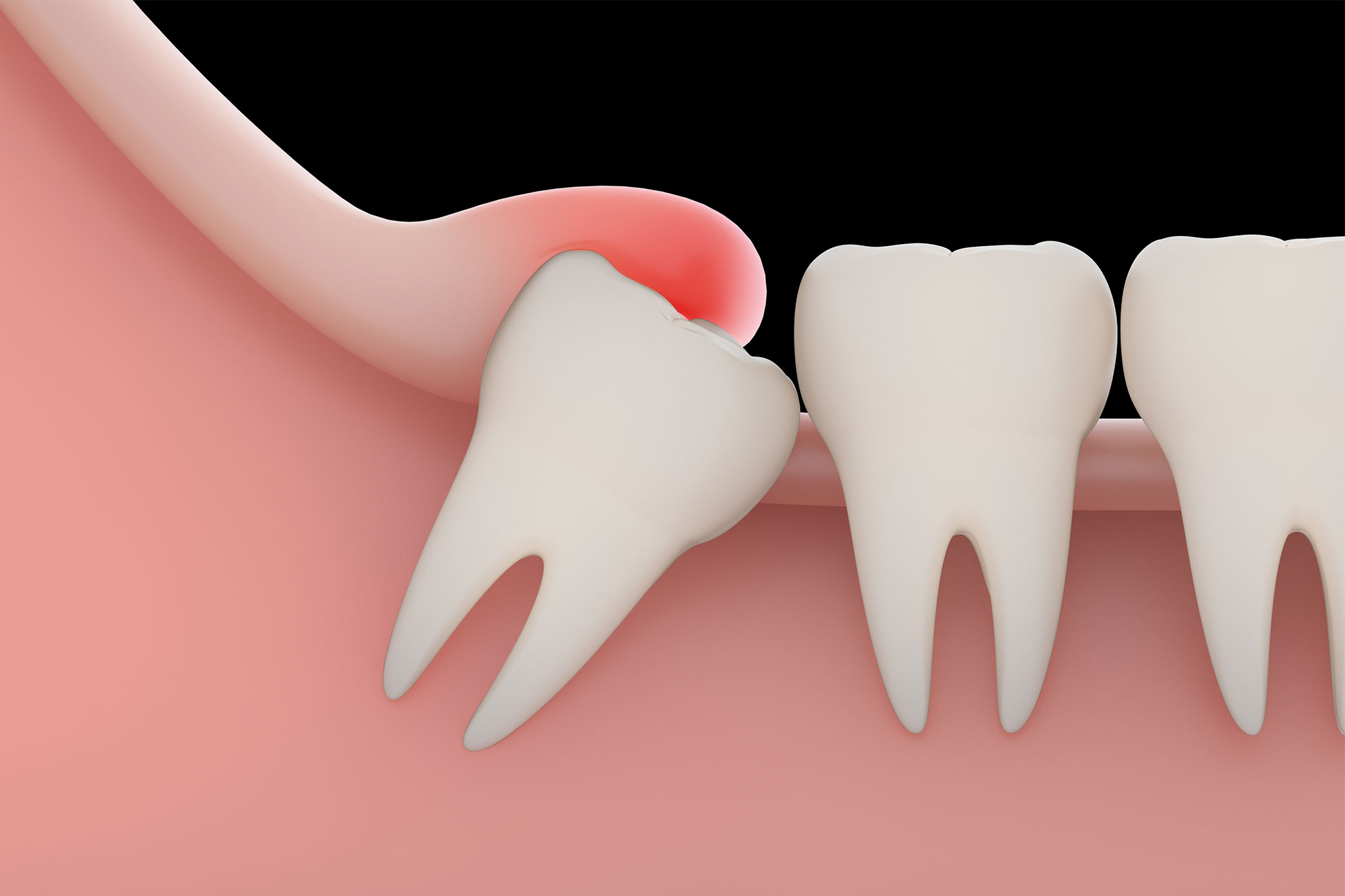WISDOM TOOTH SURGERY

Wisdom tooth extraction is a surgical procedure to remove one or more wisdom teeth — the four permanent adult teeth located at the back corners of your mouth on the top and bottom.
If a wisdom tooth doesn't have room to grow (impacted wisdom tooth), resulting in pain, infection or other dental problems, you'll likely need to have it pulled
To prevent potential future problems, some dentists and oral surgeons recommend wisdom tooth extraction even if impacted teeth aren't currently causing problems
Why it's done
Wisdom teeth, or third molars, are the last permanent teeth to appear (erupt) in the mouth. These teeth usually appear between the ages of 17 and 25. Some people never develop wisdom teeth. For others, wisdom teeth erupt normally — just as their other molars did — and cause no problems.
Many people develop impacted wisdom teeth — teeth that don't have enough room to erupt into the mouth or develop normally. Impacted wisdom teeth may erupt only partially or not at all.
An impacted wisdom tooth may:
-
Grow at an angle toward the next tooth (second molar)
-
Grow at an angle toward the back of the mouth
-
Grow at a right angle to the other teeth, as if the wisdom tooth is "lying down" within the jawbone
-
Grow straight up or down like other teeth but stay trapped within the jawbone
Problems with impacted wisdom teeth
You'll likely need your impacted wisdom tooth pulled if it results in problems such as:
-
Pain
-
Trapping food and debris behind the wisdom tooth
-
Infection or gum disease (periodontal disease)
-
Tooth decay in a partially erupted wisdom tooth
-
Damage to a nearby tooth or surrounding bone
-
Development of a fluid-filled sac (cyst) around the wisdom tooth
-
Complications with orthodontic treatments to straighten other teeth
Preventing future dental problems
Dental specialists disagree about the value of extracting impacted wisdom teeth that aren't causing problems (asymptomatic).
It's difficult to predict future problems with impacted wisdom teeth. However, here's the rationale for preventive extraction:
-
Symptom-free wisdom teeth could still harbor disease.
-
If there isn't enough space for the tooth to erupt, it's often hard to get to it and clean it properly.
-
Serious complications with wisdom teeth happen less often in younger adults.
-
Older adults may experience difficulty with surgery and complications after surgery.
PRECAUTIONS TO BE TAKEN AFTER SURGERY
-
In the first 24 hours after removal, expect bleeding. To control bleeding, place gauze over the site. Biting down on the gauze for ATLEAST 1 HOUR should end any bleeding.
-
Don’t have gauze? A tea bag works well too. Plus, the tannic acid found in tea can help form clots and prevent a condition known as “dry socket.” If the bleeding is heavy and does not stop, call your DOCTOR.
-
You should expect to see some facial swelling after the procedure. To help relieve swelling, apply ice to the swollen area for 10 minutes and remove for 20 minutes. Repeat this procedure as often as needed during the first 24 hours.
-
If stitches are given during the procedure, they may need to be removed. Talk with your dentist about whether you need to return for removal. In many cases, dentists use self-dissolving stitches that do not require removal.
-
Do not spit for 24 hours.
-
Do not rinse your mouth for 24 hours after extraction. After that, gently rinse with Luke warm salt water after meals and at bedtime. Continue salt water rinses for few days after wisdom teeth removal.
-
Take semi solid or liquid cold diet for a few days after the extraction. Work up to easy-to-chew foods gradually.
-
Do not take anything warm till 24 hours, tea, and coffe, milk everything cold.
-
Whatever comes in mouth swallow it.

